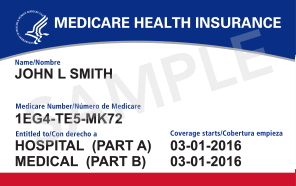Choosing Retirement Account Beneficiaries Requires Some Thought
While the execution of wills requires formalities like witnesses and a notary, the reality is that most property passes to heirs through other, less formal means.
Many bank and investments accounts, as well as real estate, have joint owners who take ownership automatically at the death of the primary owner. Other banks and investment companies offer payable on death accounts that permit owners to name the person or people who will receive them when the owners die. Life insurance, of course, permits the owner to name beneficiaries.
All of these types of ownership and beneficiary designations permit these accounts and types of property to avoid probate, meaning that they will not be governed by the terms of a will. When taking advantage of these simplified procedures, owners need to be sure that the decisions they make are consistent with their overall estate planning. It's not unusual for a will to direct that an estate be equally divided among the decedent's children, but to find that because of joint accounts or beneficiary designations the estate is distributed totally unequally, or even to non-family members, such as new boyfriends and girlfriends.
It's also important to review beneficiary designations every few years to make sure that they are still correct. An out-of-date designation may leave property to an ex-spouse, to ex-girlfriends or -boyfriends, and to people who died before the owner. All of these can thoroughly undermine an estate plan and leave a legacy of resentment that most people would prefer to avoid.
These concerns are heightened when dealing with retirement plans, whether IRAs, SEPs or 401(k) plans, because the choice of beneficiary can have significant tax implications. These types of retirement plans benefit from deferred taxation in that the income deposited into them as well as the earnings on the investments are not taxed until the funds are withdrawn. In addition, owners may withdraw funds based more or less on their life expectancy, so the younger the owner the smaller the annual required distribution. Further, in most cases, withdrawals do not have to begin until after the owner reaches age 70 1/2. However, this is not always the case for inherited IRAs.
Following are some of the rules and concerns when designating retirement account beneficiaries:
Name your spouse, usually. Surviving husbands and wives may roll over retirement plans inherited from their spouses into their own plans. This means that they can defer withdrawals until after they reach age 70 1/2 and take minimum distributions based on their age. Non-spouses of retirement plans must begin taking distributions immediately, but they can base them on their own presumably younger ages.
But not always. There are a few reasons you might not want to name your spouse, including the following:
He or she is incapacitated and can't manage the account
Doing so would add to his or her taxable estate
You are in a second marriage and want the investments to benefit your first family
Your children need the money more than your spouse
Consider a trust. In a number of the above circumstances, a trust can solve the problem, providing for management in the case of an incapacitated spouse, permitting assets to benefit a surviving spouse while being preserved for the next generation, and providing estate tax planning opportunities. Those in first marriages may want to name their spouse as the primary beneficiary and a trust as the secondary, or contingent, beneficiary. This permits the surviving spouse, or spouse's agent if the spouse is incapacitated, to refuse some or all of the inheritance through a "disclaimer" so it will pass to the trust. Known as "post mortem" estate planning, this approach permits flexibility to respond to "facts on the ground" after the death of the first spouse.
But check the trust. Most trusts are not designed to accept retirement fund assets. If they are missing key provisions, they might not be treated as "designated beneficiaries" for retirement plan purposes. In such cases, rather than being able to stretch out distributions during the beneficiary's lifetime, the IRA or 401(k) will have to be liquidated within five years of the decedent's death, resulting in accelerated taxation.
Be careful with charities. While there are some tax benefits to naming charities as beneficiaries of retirement plans, if a charity is a partial beneficiary of an account or of a trust, the other beneficiaries may not be able to stretch the distributions during their life expectancies and will have to withdraw the funds and pay the taxes within five years of the owner's death. One solution is to dedicate some retirement plans exclusively to charities and others to family members.
Consider special needs planning. It can be unfortunate if retirement plans pass to individuals with special needs who cannot manage the accounts or who may lose vital public benefits as a result of receiving the funds. This can be resolved by naming a special needs trust as the beneficiary of the funds, although this gets a bit more complicated than most trusts designed to receive retirement funds. Another alternative is not to name the individual with special needs or his trust as beneficiary, but to make up the difference with other assets of the estate or through life insurance.
Keep copies of your beneficiary designation forms. Don't count on your retirement plan administrator to maintain records of your beneficiary designations, especially if the plan is connected with a company you worked for in the past, which may or may not still exist upon your death. Keep copies of all of your forms and provide your estate planning attorney with a copy to keep with your estate plan.
But name beneficiaries! The biggest mistake many people make is not to name beneficiaries at all, or they end up in this position by not updating their plan after the originally-named beneficiary passes away. This means that the plan will have to go through probate at some expense and delay and that the funds will have to be withdrawn and taxes paid within five years of the owner’s death.
In short, while wills are important, in large part because they name a personal representative to take charge of your estate and they name guardians for minor children, they are only a small part of the picture. A comprehensive plan needs to include consideration of beneficiary designations, especially those for retirement plans.
 If your Medicare drug plan denies coverage for a drug you need, you don't have to simply accept it. There are several steps you can take to fight the decision.
If your Medicare drug plan denies coverage for a drug you need, you don't have to simply accept it. There are several steps you can take to fight the decision. The federal government is issuing new Medicare cards to all Medicare beneficiaries. T
The federal government is issuing new Medicare cards to all Medicare beneficiaries. T
 A new federal law is designed to address the growing problem of elder abuse. The law supports efforts to better understand, prevent, and combat both financial and physical elder abuse.
A new federal law is designed to address the growing problem of elder abuse. The law supports efforts to better understand, prevent, and combat both financial and physical elder abuse.